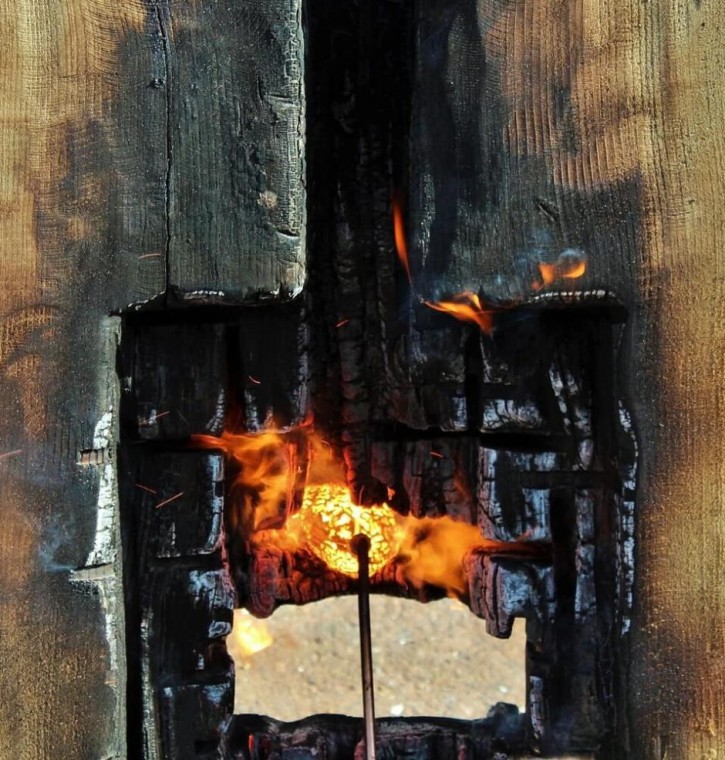 Craig Goodworth, Fire Renderings, 2016
Craig Goodworth, Fire Renderings, 2016
Be Both
Sometimes, talking with you feels like
being in the garden of Eden—you, an
Adam and Eve splice, and I, the serpent.
Play now the dragon, now the dove;
both parts are useful in affairs of love.
I try to test your arguments, try to hear
your side, but it’s exhausting hocking
knowledge like Vanna White to someone
who preserves their ignorance like youth.
Be yours the form that will o’er all prevail,
an angel’s features, and an adder’s tail.
Friend, ship, my idol to covet, I worry
that this apple is beginning to rot in hand,
my tongue tied at the fork. Trust in me when
I tell you, you are the god of your path out
of this place, which isn’t as perfect as we think—
it’s just a garden.
What e’er your morals, every look must be
dressed in comely garb of purity.
I’m tired of filling your blanks, turning
your letters in too-tight sequin gowns,
smiling even though you’re stuck on
guessing the wrong consonants and
over-spending on vowels. I took my
poisoned desserts, am leaving this false
utopia, dressed like a whore. Carrying
a child on my hip, reciting the gospel
of every would-be God who strikes my
fancy, not stumbling on my words or
tripping on the stones that hail down on
me, a witch, a wiser woman.
** Quoted text is sourced from William Dunbar’s “LXXX The Tretis of the Tua Mariit Wemen and the Wedo.”
_________________________
Kate Burnham
Review by Jared Pearce
Aside from being a fine reconsideration of the Garden tale, the way the speaker moves from Bible story to Wheel of Fortune is wonderful: relationship, culture, fashion, and language all get their place as the wheel of the poem turns and churns across the speaker’s desire for connection. It’s a tough poem, built for a tough time, that challenges and invites the reader just as the other in the poem, “You coming or what?”
Review by Melody Wilson
Kate Burnham’s “Be Both” presents a decadent stew of allusion. The result of all this obfuscation is a crystalized dilemma. The “other” isn’t listening, and it’s time to go. This is a common enough situation, but in Burnham’s hands it is filtered through Genesis and Dunbar, set on the soundstage of Wheel of Fortune with a cameo of (dare I say it?) Disney’s Kaa “Trust in me” (just in me). All of that artifice might make the feast seem a bit rich, but every line is filled with wicked delight—“hocking knowledge,” a “tongue tied at the fork,” sequin gowns and a hail of stones. This is a brave poem that flips the connotation of “everything but the kitchen sink.” It includes all the possible tones. It’s a labyrinth, a garden, and a farce, all at the same time.
